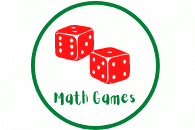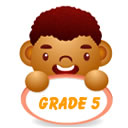Preschool Homeschool Curriculum: Tailoring Education for Little Learners
In the realm of education, homeschooling has gained significant traction, offering families the flexibility to tailor their children's learning experiences. When it comes to preschoolers, choosing the right curriculum is crucial for laying a strong educational foundation. Let's delve into the world of preschool homeschool curriculum, exploring its benefits, key components, popular options, implementation strategies, challenges, and tips for success.
Benefits of Homeschooling Preschoolers:
Homeschooling preschoolers offers a plethora of advantages. Firstly, it provides a personalized learning experience, catering to each child's unique strengths, interests, and pace of learning. Unlike traditional classroom settings, homeschooling allows for flexibility in scheduling, enabling parents to adapt lessons to their child's natural rhythms and interests. Moreover, homeschooling enables parents to tailor the curriculum to suit the individual needs and learning styles of their preschoolers, fostering a deeper understanding and retention of concepts.
For U.K. system follow these links: Reception worksheets | Year 1 | Year 2 | Year 3 | Year 4 | Year 5 | Year 6 | Year 7 | Year 8 | Multiplication worksheets pdf | Counting to ten |
Preschool Worksheets

Live preschool Math Worksheets these cover all topics for Pre-kindergarten.
Go to pageKindergarten Worksheets

Check out the latest colorful kindergarten worksheets collection for teachers.
Go to page1st Grade Worksheets

The 1st grade section contains worksheets with answer keys. Easy to use.
Go to page3rd Grade Worksheets

In third grade, we covered every topic with a pdf printable test sheet.
Go to page4th Grade Worksheets

Adapt our 4th grade math worksheets to your class. Download and try out each topic.
Go to page6th Grade Worksheets

6th grade gets a little harder but with our worksheets, everything is made easy.
Go to page7th Grade Worksheets

7th grade math worksheets covering several math topics with much engagement.
Go to pageKey Components of a Preschool Homeschool Curriculum:
A comprehensive preschool homeschool curriculum encompasses various components essential for holistic development. Language development activities, such as reading, storytelling, and vocabulary building, lay the groundwork for effective communication skills. Mathematical concepts are introduced through hands-on activities, games, and manipulatives, fostering a solid foundation in numeracy. Hands-on science exploration encourages curiosity and inquiry, promoting a love for learning. Social and emotional development exercises, including role-playing and cooperative games, nurture empathy, self-awareness, and interpersonal skills. Fine motor skills practice through activities like coloring, cutting, and tracing enhances dexterity and coordination. Creative arts and crafts unleash preschoolers' creativity, imagination, and self-expression.
Choosing the Right Curriculum for Your Child:
Selecting the appropriate curriculum involves careful consideration of various factors. Begin by understanding your child's learning style, whether they are visual, auditory, kinesthetic, or a combination thereof. Research available options, considering their alignment with your child's interests, developmental stage, and learning goals. Additionally, reflect on your teaching preferences and comfort level with different educational approaches. Budget considerations also play a crucial role, as homeschooling materials can vary significantly in cost.
-
Popular Preschool Homeschool Curriculum Options:
Numerous approaches to preschool homeschooling exist, each with its philosophy and methodology. The Montessori method emphasizes child-directed learning, hands-on exploration, and mixed-age classrooms. The Waldorf approach prioritizes holistic development, imaginative play, and arts-rich curriculum. Unit studies curriculum integrates various subjects around a central theme, fostering interdisciplinary connections. Classical education emphasizes the mastery of core knowledge, critical thinking, and rigorous academic standards. The Charlotte Mason method focuses on living books, nature study, and short lessons, aiming to cultivate a love for learning.
Implementing the Chosen Curriculum:
Once you've selected a curriculum that aligns with your child's needs and your educational philosophy, it's time to put it into action. Organize learning materials in a way that is accessible and engaging for your preschooler. Set up a conducive learning environment, free from distractions and conducive to exploration and discovery. Establish a daily routine that incorporates structured learning activities, playtime, and breaks. Remember to prioritize play-based learning, as it is essential for young children's cognitive, social, and emotional development.
Assessing Progress and Making Adjustments:
Regularly monitor your child's progress and milestones, keeping track of their achievements and areas for growth. Conduct informal evaluations to gauge their understanding and retention of concepts. Be open to making adjustments to the curriculum as needed, based on your child's evolving interests, strengths, and challenges. Flexibility is key in homeschooling, allowing you to adapt and tailor the learning experience to meet your child's individual needs effectively.
Support Systems for Homeschooling Families:
Homeschooling can sometimes feel isolating, but there are numerous support systems available to assist you on your journey. Online communities and forums provide a platform for networking, sharing resources, and seeking advice from experienced homeschoolers. Co-op groups offer opportunities for collaborative learning and socialization with other homeschooling families. Local homeschooling associations often organize events, field trips, and workshops to support families in their homeschooling endeavors. Additionally, seeking professional guidance from educational consultants or tutors can offer valuable insights and expertise.
Challenges of Homeschooling Preschoolers:
While homeschooling preschoolers can be immensely rewarding, it also comes with its challenges. Balancing homeschooling with other responsibilities, such as work and household duties, requires careful time management and prioritization. Keeping young children engaged and focused during learning sessions can be challenging, requiring creativity and patience on the part of the parent-teacher. Addressing socialization concerns is another common challenge, but opportunities for social interaction can be found through playdates, community activities, and homeschooling co-ops.
Tips for Success:
To ensure a successful homeschooling experience for your preschooler, keep the following tips in mind. First and foremost, practice patience and flexibility, recognizing that every child learns at their own pace. Incorporate outdoor activities into your curriculum, as nature provides a rich learning environment for young children. Make learning fun and engaging by incorporating games, hands-on activities, and sensory experiences. Take breaks when needed to prevent burnout and maintain enthusiasm for learning. Remember that homeschooling is a journey, and it's okay to adapt and adjust your approach along the way.
Conclusion:
In conclusion, preschool homeschooling offers a unique opportunity for parents to tailor their child's education to suit their individual needs, interests, and learning styles. By selecting the right curriculum, implementing effective teaching strategies, and leveraging support systems, parents can create a rich and rewarding learning experience for their preschoolers. With patience, flexibility, and dedication, homeschooling can lay a solid foundation for a lifetime of learning and academic success.
FAQs:
-
What age can you start homeschooling preschool?
- Homeschooling preschool typically begins around ages 3 to 5, depending on the child's readiness and family preferences.
-
How much time should be devoted to homeschooling preschoolers each day?
- Preschoolers typically engage in homeschooling activities for 1 to 3 hours per day, depending on their attention span and developmental stage.
-
Can I customize the curriculum based on my child's interests?
- Absolutely! One of the advantages of homeschooling is the ability to tailor the curriculum to your child's interests, strengths, and learning style.
-
Is homeschooling preschoolers legal?
- Yes, homeschooling preschoolers is legal in most jurisdictions, although specific regulations may vary. It's essential to research and comply with local homeschooling laws and requirements.
-
What if I don't feel qualified to homeschool my preschooler?
- Many resources, support groups, and educational materials are available to assist homeschooling parents, regardless of their background or expertise. Don't hesitate to reach out for help and guidance.
-
 This exercise will help kids practice Math in a fun way. Kids related to games very well. From preschool / kindergarten to sixth grade levels of math games. There are games for the following topics:
This exercise will help kids practice Math in a fun way. Kids related to games very well. From preschool / kindergarten to sixth grade levels of math games. There are games for the following topics:
The games include among other : memory games, Walk the plank, Fling the Teacher, En Garde Duel, Basketball Game, Penalty Shoot and more.


